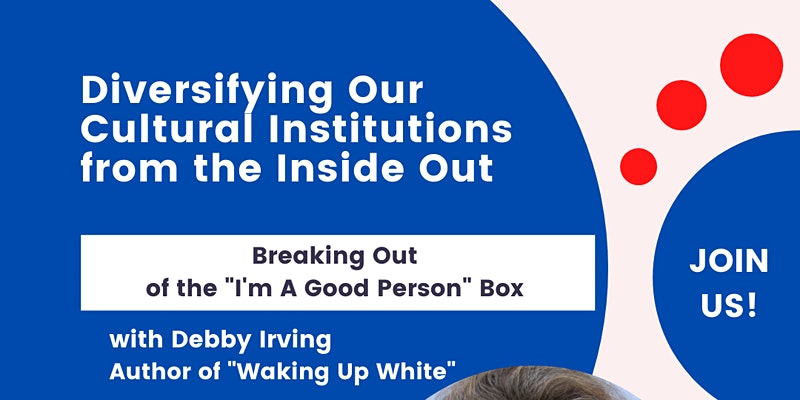FREE LIVE STREAMING EVENT

Thursday, October 7th
The Baltimore National Heritage Area (BNHA) will hold its Annual Meeting on Thursday, October 7th at 3:30 pm and I am extending a personal invitation to you to attend. This meeting will be different for us in that we have turned over most of the meeting to Debby Irving who will tackle the important and highly relevant subject of diversity in cultural institutions as it relates to leadership and staff personal biases.
So many of our partners want to better serve their communities and they work hard on a daily basis to tell complete stories of their institutions and subjects, yet fall short. Irving through her seminars and books looks to go deeper into personal biases and how they may be shaping work in the DEI space. Is “being a good person” enough? Debby doesn’t think so. Join us for this important and timely conversation. Registration is required –
The conversation will be led by Debby Irving. Irving brings to racial justice the perspective of working as a community organizer and classroom teacher for 25 years without understanding racism as a systemic issue or her own whiteness as an obstacle to grappling with it. As general manager of Boston’s Dance Umbrella and First Night, and later as a classroom teacher in Cambridge, Massachusetts, she struggled to make sense of tensions she could feel but not explain in racially mixed settings. In 2009, a graduate school course, Racial and Cultural Identities, gave her the answers she’d been looking for and launched her on a journey of discovery. Debby now devotes herself to working with white people exploring the impact white skin can have on perception, problem-solving, and engaging in racial justice work. A graduate of the Winsor School in Boston, she holds a BA from Kenyon College and an MBA from Simmons College. Her book, Waking Up White, tells the story of how she went from well-meaning to well-doing and how she unpacked her own long-held beliefs about colorblindness, being a good person, and wanting to help people of color. She reveals how each of these well-intentioned mindsets actually perpetuated her ill-conceived ideas about race.
